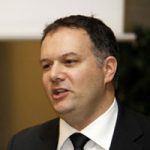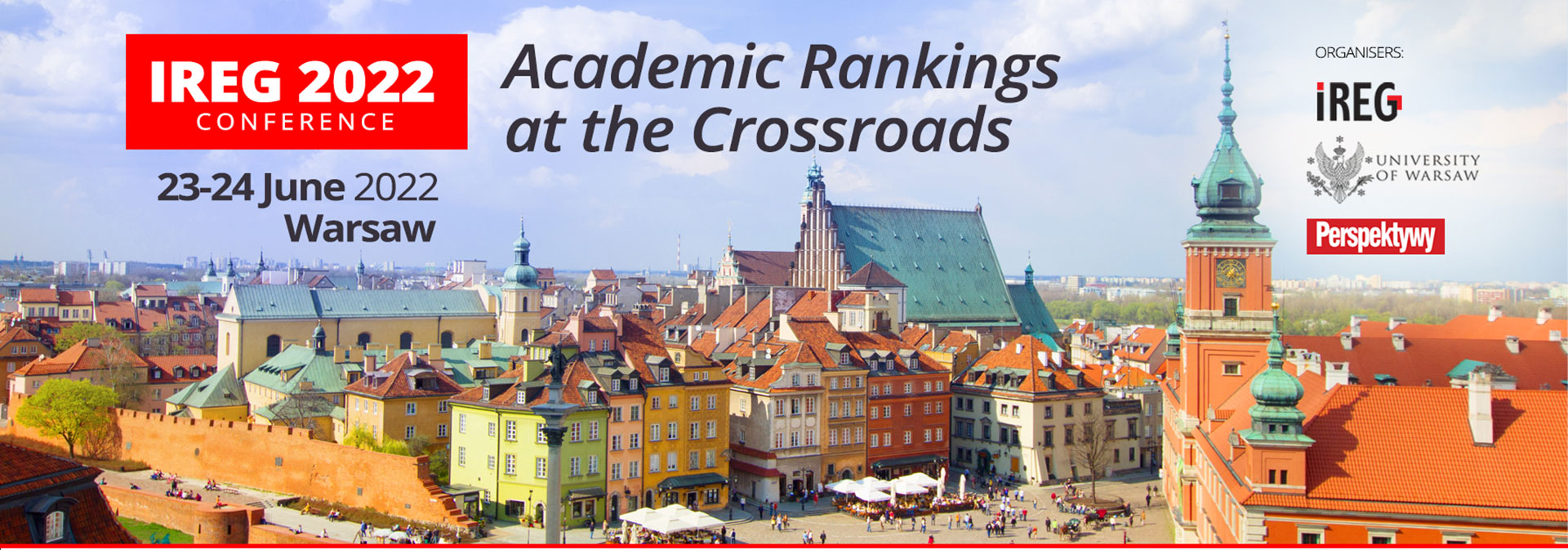
INVITATION
IREG 2022 Warsaw Conference
Academic Rankings at the Crossroads
The IREG 2022 Conference in Warsaw will have a special, jubilee character. A group of international ranking experts (IREG) met for the first time in Warsaw twenty years ago under the auspices of UNESCO CEPES and Kozminski University. Already then, national university rankings played an important role in several countries (Best Colleges by US News, L’Etudiant ranking in France, CHE ranking in Germany, Perspektywy ranking in Poland or McLean’s ranking in Canada). It is important to stress that the IREG meeting in Warsaw preceded the appearance of the Shanghai ranking by a year followed by QS, THE, and other global rankings. This only demonstrates how forth-sighted those experts that met then in Warsaw were.
Global rankings have strengthened as well as proliferated; they became important and influential leaving their mark on higher education. This process, however, have not happened at the expense of national rankings; they not only stood their ground but in general are as important as ever.
Over the time, thanks largely to the appearance of the ever richer and comprehensive data bases academic rankings on all levels have become more sophisticated and influential leaving its mark on higher education. Yet, despite the degree of sophistication, rankings so far failed to measure some essential element of higher education such as teaching.-
The conference in Warsaw will take stock of going on in rankings, will analyze rankings impact on higher education. Over the past 20 years rankings have grown in importance and influence, but they had and still have supporters as well as sceptics, if not adversaries. IREG conferences are open to both.
So much has happened since the last face-to-face IREG conference in Bologna in 2019. The Covid pandemic closed the world for two years, and now, we face the war in Ukraine. These events will have a lasting effect on higher education all over. The phenomenon of internationalization will never be what it used to. Mobility of students may decline or change directions; research cooperation can face new political barriers. All this will impact rankings, too.
Academic rankings are at the crossroads; which way will they go, develop?. The conference will try to answer at least some of the questions.
- How much rankings are helping, and how much they harm higher education?
- What are their strong and weak side as a tool in assessment of higher education?
- How to keep healthy balance between global, regional and national rankings, insuring that each maintains its independence?
- Should the present structure be maintained, where institutions provide data for free to private database owners who, in turn, sell these data back to them?
- Isn’t it time for international organizations such as UNESCO, OECD or the European Commission to create a non-commercial database on higher education?
The IREG conferences have traditionally become a unique and neutral international platform, where university rankings are discussed in the presence of those who do the rankings, and those who are ranked: authors of the main global rankings, university managers, and experts on higher education.
“There is at least one organization that serves as a base for communication among those concerned with rankings, the International Ranking Expert Group (IREG) Observatory on Academic Ranking and Excellence, which attracts hundreds to its conferences”. Philip G. Altbach in Research Handbook on University Rankings.
PROGRAM
Academic Rankings at the Crossroads
Warsaw, Poland 23-24 June 2022
Organizers:
IREG Observatory on Academic Ranking and Excellence
University of Warsaw
Perspektywy Education Foundation
Draft program (as of 20 June)
June 22 (Wednesday)
Venue: Novotel Warsaw Centrum, 94/98 Marszalkowska Str.
Whole day — Arrival of participants
12:00-14:00
ACCOMPANYING EVENT
Perspektywy University Ranking (Poland) 2022 announced
All partcipants of IREG 2022 are invited to the event.
15:00-17:00 MASTER CLASSES by RANKING ORGANIZATIONS
Attendees: delegates to the IREG 2022 Conference and experts from Polish universities who will come to Warsaw for the final of the Perspektywy University Ranking (Poland). They have been invited to this pre-conference event – Masterclasses by global ranking organizations.
Chair: Zygmunt Krasinski, Strategic Advisor, National Center for Research and Development (Poland)
15:00-16:00 Webometrics Ranking
- Isidro Aguillo, Editor of Webometrics, Head of Cybermetric Lab, Scimago Group, (Spain)
16:00-17:00 QS World University Rankings
- Ben Sowter, Senior Vice President, QS Quacquarelli Symonds (United Kingdom)
- Andrew MacFarlane, Senior Research Manager (Rankings) at QS Quacquarelli Symonds
17:00-18:30 IREG Executive Committee (closed meeting)
19:00-WELCOME RECEPTION
Venue: Novotel Warsaw Centrum, Irys Hall, 94/98 Marszalkowska Str.
June 23 (Thursday)
Venue: University of Warsaw (Old Library), 26/28 Krakowskie Przedmiescie Str.
8:15-9:00 Conference registration, morning coffee
9:00-9:20 OPENING SESSION
- Luiz C. Costa, President, IREG Observatory on Academic Ranking and Excellence, President of IESB University (Brazil)
- Alojzy Nowak, Rector, University of Warsaw (Poland)
- Wojciech Murdzek, Secretary of state, Ministry of Education and Science (Poland) (tbc)
9:20-9:50 SPECIAL GUESTS
- Prof. Michael Murphy, President, European University Association (EUA): – The future university – new challenges in performance measurement
- Komiljon Karimov, First Deputy Minister, Ministry of Higher and Secondary Specialized Education (Republic of Uzbekistan)
9:50-10:10 KEYNOTE SPEECH
- Marek Kwiek, University of Poznan (Poland): – Global Science, Global Scientists: Big Data and Understanding the Academic Enterprise in the Global Edge
10:10-11:00 FIRST SESSION Science and rankings in the age of uncertainty
- Michail Zgurovsky, Rector, Igor Sikorsky University of Technology (Ukraine): – Challenges before higher education in Ukraine
- Waldemar Siwinski, Vice President of IREG Observatory (Poland): – 20 years of caring for quality of rankings and higher education-Jubilee of the IREG Observatory
Jubilee addresses:
- Michelle Asha Cooper, Deputy Assistant Secretary for Higher Education Programs and Acting Assistant Secretary for Postsecondary Education in the U.S. Department of Education (USA)
- Ying Cheng, CEO&Co-Founder at Shanghai Ranking Consultancy (China)
- Robert Morse, Chief Data Strategist for US News & World Report (USA)
11:00-11:30 Coffee break
11:30-13:00 SECOND SESSION Geopolitics of higher education and rankings
The emergence and wide usage of global rankings were a response to the accelerating pace of the internationalisation and geo-politicalisation of higher education and research. For nations, research intensive universities became an indicator of positioning in a changing albeit unequal global world economy. Today, according to the IREG Observatory, there almost twenty global rankings along with many more regional, national and specialist rankings.
As we reach and enter the second decade of the century, we face many new challenges: hyper-globalisation creating increasing inequalities; technological changes and the 4th industrial revolution bringing huge changes to work and life; demographic change and shifts in the global talent pool; and the rise of nationalism, exceptionalism, populism and social unrest with too many people feeling left behind. And, of course, the Covid-19 pandemic and invasion of Ukraine.
The response to the pandemic shows us how the internationalisation of higher education and research can help solve global challenges. In contrast, the invasion of Ukraine highlights the fragility of those links and the securitisation of higher education and research.
The increasingly fractured character of geopolitics also highlights something more existential. “World University Rankings” assumes a single higher education sector in the global scale. This was always partly misleading, in that different national higher education traditions are partly heterogeneous, and the notions of “world university” embodied in rankings is, arguably, Euro-American centric. However, with China no longer treating international publishing as an internal “gold standard”, and some of its universities exiting from ranking, and with Russia abandoning the “World-Class” aspiration embodied in its 5/100 programme, larger questions are being asked about whether there is a “world” higher education sector.
On the 20th anniversary of IREG, this session will reflect on twenty years of global university rankings. What are the implications of recent global events on higher education and research, and on rankings? If the millennium years were dominated by the pursuit of world-classness — are rankings still relevant or meaningful today?
Chair: Ellen Hazelkorn, BH Associates (Ireland)
Speakers:
- Brendan Cantwell, Professor, Michigan State University (USA)
- Dominik Antonowicz, Professor, Nicolaus Copernicus University (Poland)
Online presence:
- Simon Marginson, Director, Centre for Global Higher Education, University of Oxford (UK)
Discussion
13:00-14:00 Lunch
14:00-15:45 THIRD SESSION Future of higher education and rankings – global and regional perspective
Global rankings were born in an era when “innovation” was coming to the fore as an ingredient for economic growth and universities – particularly those built on the model of big American research universities – were seen as a key ingredient to innovation. There was as a result a striking consensus with respect to research being the defining mission of the “best” universities. And, as it happened, this occurred not long after large bibliometric databases became widespread and the use of bibliometric analyses more common. Public policy thus aligned with indicator availability to make global research rankings both possible and desirable.
But times have changed. As growth has faltered falters in much of the world and the consensus about the economic benefits of higher education begins to break down in some countries, the desirability of such an intense focus on research is being questioned. Even where research is not questioned, the English-language bias of many bibliometric databases is increasingly seen as inimical to the development of “domestic” science in many countries. And, while “internationalization” has been seen since 1989 as an unalloyed Good Thing, increasingly, international conflict both cold and hot as well as rising housing prices in countries receiving international students are eating away at this consensus as well.
The two key questions to be answered in this session are, therefore:
- Will key higher education stakeholders’ views about the value and mission of higher education change significantly in the next few years, and if so, in what direction?
- Are there global rankings alternatives that can respond to demands to capture new and better data about institutional missions outside the research arena which are both comparable and not too expensive to produce? And if not, what is the future for global rankings?
Chair: Alex Usher, President, Higher Education Strategy Associates (Canada)
Speakers:
- Isidro Aguillo, Editor of Webometrics, Head of Cybermetric Lab, Scimago Group (Spain)
- Gero Federkail, U-Multirank Coordinator, CHE-Centre for Educational Development (Germany)
- Ben Sowter, Senior Vice President, QS Quacquarelli Symonds
Online presence:
- Phil Baty, Chief Chief Knowledge Officer, Times Higher Education (United Kingdom)
- Lu Wang, Ranking Manager, Shanghai Ranking Consultancy (China)
15:45-16:00 Coffee break
16:00-17:00
FOURTH SESSION Polish universities-focus on science
During session
During the session, the latest research programs and achievements of leading Polish universities will be presented – in the context of the new European development strategy.
Chair: Zygmunt Lalak, Vice-Rector for research, University of Warsaw
Invited speakers:
- Arkadiusz Wójs, Rector, Wrocław University of Science and Technology
- Piotr Pruszczyk, Vice Rector for Science and Technology Transfer, Medical University of Warsaw
- Stanislaw Kistryn, Rector’s Proxy, Jagiellonian University
- Katarzyna Szczepańska, Vice-Rector, WSB University
19:00-22:30
GALA DINNER
and IREG Medal Award Ceremny-honoring
Prof. Andrzej Kozminski
Venue: Agriculture Library, 66 Krakowskie Przedmiescie Str.
June 24 (Friday)
Venue: University of Warsaw (Old Library), 26/28 Krakowskie Przedmiescie Str.
9:30-11:00 FIFTH SESSION Future on national rankings-context of date sources
Chair: Thomas Parker, Senior Associate, Institute for Higher Education Policy (USA)
Speakers:
- Richard Holmes, Editor, University Ranking Watch (United Kingdom/Malaysia): – Changes in the landscape of national and regional rankings.
- Raghu Raman, Amrita University (India): – National rankings in India – their methodologies, usefulness for future students and impact on higher education
- Gillian Golden, Project Manager — Higher Education Evidence Development at OECD (Ireland): – Independent International data-based on higher education
- Riti Fitri Sari, Greenmetrics Ranking, University of Indonesia (Indonesia): – Environmental concerns in rankings
11:00-11:30 Coffee break
11:30-11:45 PARTNER PRESENTATION
- Rachel Martin, Global Director of Sustainability at Elsevier (The Netherlands)
11:45-13:00 SIXTH SESSION How rankings mirror changes in universities after COVID, and what role will online teaching play
Chair: Luiz Claudio Costa, President, IREG Observatory on Academic Ranking and Excellence, President of IESB University (Brazil)
Speakers:
- Grzegorz Mazurek, Rector, Kozminski University (Poland)
- Mukhambetkali Burkitbayev, Al-Farabi Kazakh National University (Kazakhstan)
- Michael Caruana, Strategic Partnerships Director, Minerva Project (USA)
13:00-13:30 CLOSING SESSION
- Alojzy Nowak, Rector, University of Warsaw
- Luiz Costa, President, IREG Observatory on Academic Ranking and Excellence, President of IESB University (Brazil)
13:30-14:30 Farwell lunch
14:30-17:00 Guided tour of Old Warsaw (optional)
14:40
IREG Observatory General Assembly 2022 (for members only)
Venue: University of Warsaw (Old Library),
26/28 Krakowskie Przedmiescie Str.
ORGANIZERS
Program Committee
- Luiz Claudio Costa, President, IREG Observatory on Academic Ranking and Excellence (Brazil)
- Alojzy Nowak, Rector, University of Warsaw (Poland)
- Waldemar Siwinski, President, Perspektywy Education Foundation (Poland)
- Birte Hornemann, University of Aalborg (Danemark)
- Mirko Degli Esposti, Bologna University (Italy)
- Habib Fardoun, King Abdualziz University (Saudi Arabia)
Organizing Committee
- Kazimierz Bilanow, Managing Director, IREG Observatory on Academic Ranking and Excellence
- Joanna Lewczuk, University of Warsaw
- Julia Lysik, IREG Observatory
- Magdalena Chrostna, Perspektywy Education Foundation
SPEAKERS
 Luiz Claudio Costa
Luiz Claudio Costa
President, IREG Observatory on Academic Ranking and Excellence (Brazil)Rector of IESB University, Former Acting Minister of Education, Federal Government of Brazil, Former President of the National Institute of Educational Studies and Research Anísio Teixeira (INEP), Brazil. Former Vice President of the PISA (Program for International Student Assessment) of OECD.
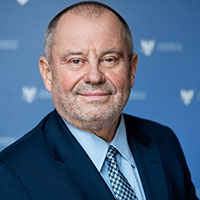
Alojzy Nowak
Rector, University of Warsaw (Poland)He also worked as an associate professor at Urbana – Champaign (USA), the University of Exeter (UK), in Antwerp and the Free University of Berlin (Germany). He lectured at universities in France, UK, USA, Russia, China and Korea. Nominated by the President of Poland to the National Development Council.
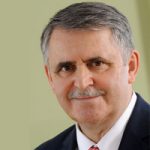 Waldemar Siwinski
Waldemar Siwinski
Vice President, IREG Observatory, President, Perspektywy (Poland)Founder of Perspektywy Education Foundation. Author of over 70 rankings of universities, business schools and secondary schools in Poland. Former President of the Polish Press Agency (PAP).
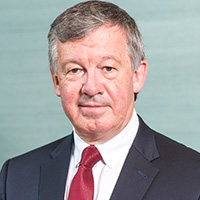 Michael Murphy
Michael Murphy
President of the European University Association (EUA). A past President of University College Cork, (Ireland)
Michael Murphy is President of the European University Association. A past President of University College Cork, Ireland (2007-17), he has been active in many academic organisations in Europe and the United States and has served as Vice-Chancellor of the National University of Ireland, Chair of the Health Research Board of Ireland, Chair of the Irish Universities Association and Chair of the Permanent Working Group (PWG) of European Hospital Doctors. Currently, he chairs the Steering Committee of the European Learning and Teaching Forum and the Advisory Board of U-Multirank.
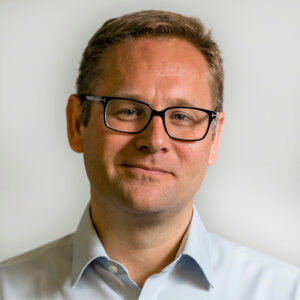
Phil Baty
Chief Knowledge Officer, Times Higher Education (United Kingdom)Phil Baty is an international authority on university performance and strategy, with more than 25 years of experience in global higher education, including a decade (2009-2019) as editor of the prestigious Times Higher Education (THE) World University Rankings.
 Ellen Hazelkorn
Ellen Hazelkorn
Dublin Institute of Technology (Ireland)
Professor Ellen Hazelkorn is Joint Managing Partner, BH Associates. She is Professor Emeritus, Technological University Dublin, and Joint Editor, Policy Reviews in Higher Education (http://www.tandfonline.com/toc/rprh20/current). She has authored/co-authored over 200 peer-reviewed articles, policy briefs, books and book chapters, and delivered over 200 keynotes speeches.
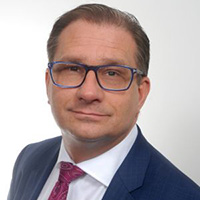
Marek Kwiek
Professor at Adam Mickiewicz University in Poznan (Poland)Marek Kwiek is Director of the Institute for Advanced Studies in Social Sciences and Humanities (IAS), University of Poznan (UAM), Poland. His research area is quantitative studies of science and higher education research and policy. A Principal Investigator in 25 international higher education research projects. An international higher education policy expert for the European Commission, USAID, OECD, World Bank, UNESCO, Council of Europe, and the European Parliament.
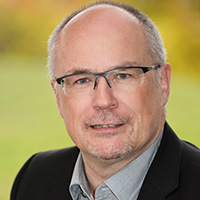
Gero Federkeil
Manager in Charge of Rankings, CHE-Centre for Educational Development (Germany)
He is also Managing Director at U-Multirank. Since 2000 he has been working at the CHE Centre for Higher Education Development as a project manager. His main fields of work are ranking, evaluation, quality management and performance indicators.
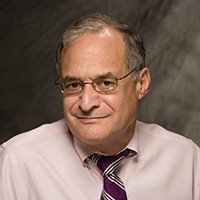 Robert Morse
Robert Morse
Chief Data Strategist for US News & World Report (USA)Robert Morse is the Director of Data Research for U.S. News & World Report. He is in charge of producing the America’s Best Colleges, the America’s Best Graduate Schools and America’s Best High Schools rankings all of which are published annually by U.S. News & World Report. He takes the lead role in survey design, ranking methodology changes and higher education research.
Member of IREG Observatory Executive Committee.
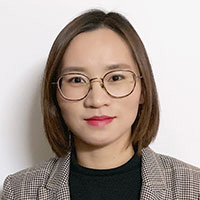 Lu Wang
Lu Wang
Ranking Manager at Shanghai Ranking Consultancy (China) Michelle Asha Cooper
Michelle Asha Cooper
Deputy Assistant Secretary for Higher Education Programs and Acting Assistant Secretary for Postsecondary Education in the U.S. Department of Education (USA)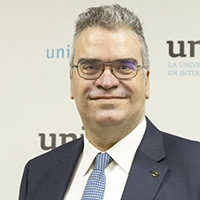
Isidro F. Aguillo
Editor of Webometrics, Head of Cybermetric Lab – Scimago Group, IPP-CSIC (Spain)Isidro F. Aguillo is the founder and editor of the journal “Cybermetrics”, the first electronic-only journal of the CSIC. He has published more than 60 papers in international journals. He was the chair or speaker at more than 400 workshops, seminars and conferences in more than 80 universities and professional societies worldwide.
Alex Usher
President, Higher Education Strategy Associates (Canada)Alex Usher is an internationally recognized expert on higher education. He has authored numerous ground-breaking studies in higher education. In addition to his years of work on higher education in Canada, his recent works spans Asia, Europe and Africa as well.
 Andrzej Kozminski
Andrzej Kozminski
Co-founder and first Rector of Kozminski University (Poland)President and founder of Kozminski University. former rector of the university. He is a member of the Polish Academy of Sciences. He was a visiting professor at University of California and other institutions in USA and France.
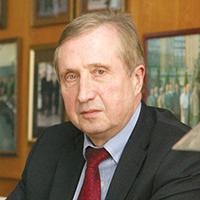 Michael Zgurovsky
Michael Zgurovsky
Rector of Igor Sikorsky Kyiv Polytechnic Institute (Ukraine)Former Minister of Education of Ukraine. Member of National Academy of Sciences of Ukraine, Doctor of Technical Sciences, Honored Scientist of Ukraine, laureate of the State Prize of Ukraine in Science and Technology. He is the author and co-author of over 300 scientific papers.
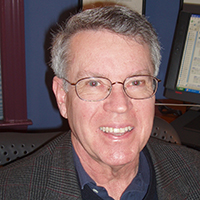 Thomas Parker
Thomas Parker
Senior Associate, Institute for Higher Education Policy (USA)
Editor of Webometrics, Head of Cybermetric Lab – Scimago Group, IPP-CSIC (Spain)
Isidro F. Aguillo is the founder and editor of the journal “Cybermetrics”, the first electronic-only journal of the CSIC. He has published more than 60 papers in international journals. He was the chair or speaker at more than 400 workshops, seminars and conferences in more than 80 universities and professional societies worldwide.
 Richard Holmes
Richard Holmes
Editor, University Ranking Watch (United Kingdom/Malaysia)
He is an expert on international university rankings and produces the University Ranking Watch blog. He has also written on rankings for a variety of publications including WONK HE, Study International, the Asian Journal of University Education, and Arabia Higher Education.
 Simon Marginson
Simon Marginson
Professor of Higher Education at the University of Oxford, Director of the ESRC/OFSRE Centre for Global Higher Education (CGHE) (UK/Australia)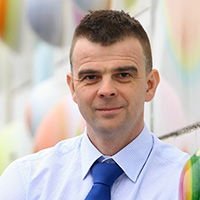 Dominik Antonowicz
Dominik Antonowicz
Professor at Nicolas Copernicus University (Poland)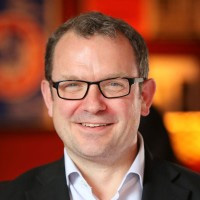 Ben Sowter
Ben Sowter
Senior Vice President, QS Quacquarelli Symonds (United Kingdom)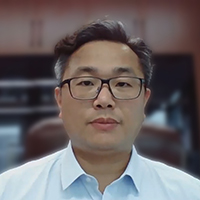 Ying Cheng
Ying Cheng
CEO & Co-Founder at Shanghai Ranking Consultancy (China)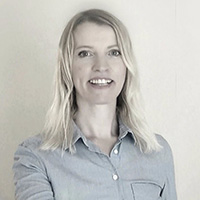 Gillian Golden
Gillian Golden
Project Manager, Higher Education Evidence Development at OECD (Ireland)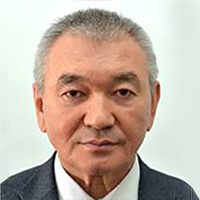 Burkitbayev Mukhambetkali
Burkitbayev Mukhambetkali
Professor, and former first Vice Rector, al-Farabi Kazakh National University, Almaty (Kazakhstan)
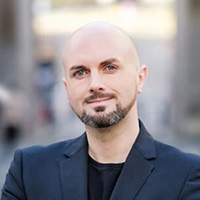 Andrew MacFarlane
Andrew MacFarlane
Senior Research Manager (Rankings) at QS Quacquarelli Symonds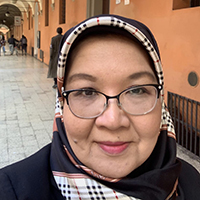 Riti Fitri Sari
Riti Fitri Sari
Greenmetrics Ranking, University of Indonesia (Indonesia)
 Katarzyna Szczepańska-Woszczyna
Katarzyna Szczepańska-Woszczyna
Vice-Rector for Science and Education, WSB Academy in Dąbrowa Górnicza
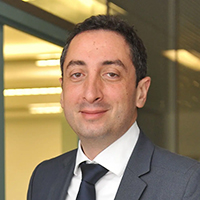 Georges Yahchouchi
Georges Yahchouchi
President, American University of the Middle East Michael Caruana
Michael Caruana
Strategic Partnerships Director
Minerva Project (USA)
Michael Caruana is Director of Strategic Partnerships at Minerva Project where he is in charge of developing relationships with higher education and governmental bodies in the EMEA and CIS regions. In this role, he focuses on education transformation through curricular reform, pedagogical innovations, and data-driven delivery and assessment through technology. Prior to that, Michael was at Times Higher Education (2007 to 2021) where he was director of partnerships, responsible for institutional analysis of rankings data, benchmarking, and Ministerial relations advising on countrywide strategies to measure outputs in teaching and research.
 Brendan Cantwell
Brendan Cantwell
Associate Professor, University of Arizona/ Michigan State University (USA) Rachel Martin
Rachel Martin
The Global Director of Sustainability at Elsevier
GALLERY
UNIVERSITY OF WARSAW
The University of Warsaw (UW) is the largest university in Poland and the best research centre in the country. UW was founded in 1816. It is the oldest active academic institution in Warsaw and one of top employers based in Masovian Voivodship. Since its establishment the UW community has produced many outstanding scholars and created famous scientific schools. UW graduates won six Nobel Prize awards: Henryk Sienkiewicz, Menachem Begin, Czesław Miłosz, Joseph Rotblat, Leonid Hurwicz and Olga Tokarczuk.
The UW continues to develop and to pursue four strategic objectives: strengthening the position of UW as a Poland’s leading research centre, maintaining its high ranking among the Central European universities and becoming one of the continent’s top universities, gaining international recognition, continuing a strong impact on its environment, in particular by addressing socially significant research topics.
As the first university in Poland, UW signed up to the Race to Zero, a global initiative for a Zero Carbon World. The University of Warsaw was the first university in Poland to adopt the Gender Equality Plan. The document responds to the needs of the university community. GEP was created as a result of expert consultations reflecting good practice from European institutions.
UW comprises 24 faculties, 4 doctoral schools and approx. 30 research and didactic centres. UW offers a world-class education delivered in the Humanities, Social Sciences, and Natural Sciences, including interdisciplinary courses, 24 programmes in English, 22 joint degree programmes, 13 paramedical programmes, 9 engineering and technology programmes, and 3 Bachelor’s programmes in science.
The UW community includes: 7,700 employees; 2,400 doctoral candidates; 40,000 undergraduate and graduate students; 2,100 postgraduate students; 3,800 international students and doctoral candidates.
Within 2011–2020, UW is a leader among Polish beneficiaries of EU Framework Programme Horizon 2020 (96 projects and coordination).
UW researchers conduct over 1,400 projects under the grants from national and international entities, e.g. EU framework programmes, ERC grants. Between 2007-2021, Polish researchers won 53 ERC grants, out of which 24 grants obtained UW researchers. UW research teams cooperate with prestigious academic and research centres from the whole world.
In 2016, UW was granted “HR Excellence in Research Award” in the recognition of the principles of the European Charter for Researchers and the Code of the Conduct for Recruitment of Researchers.
UW belongs to the 4EU+ European University Alliance selected by the European Commission for funding in the ‘European Universities’ call for proposals, launched as part of the 2019 Erasmus+ programme. Six partner universities: Charles, Heidelberg and Sorbonne Universities, and the Universities of Copenhagen, Milan and Warsaw, have come together to establish a shared, seamless infrastructure, which will bring together professors, researchers, students and staff from the Alliance institutions.
UW realises projects within three European Institute of Innovation & Technology (EIT) Knowledge and Innovation Communities (KIC): EIT Food, EIT Climate, and EIT Raw Materials.
Edited by the UW Press Office, 2022
GALLERY
fot. Mirosław Kaźmierczak, UW
23 JUNE
fot. Mirosław Kaźmierczak, UW
24 JUNE
fot. Mirosław Kaźmierczak, UW
Gala Dinner

